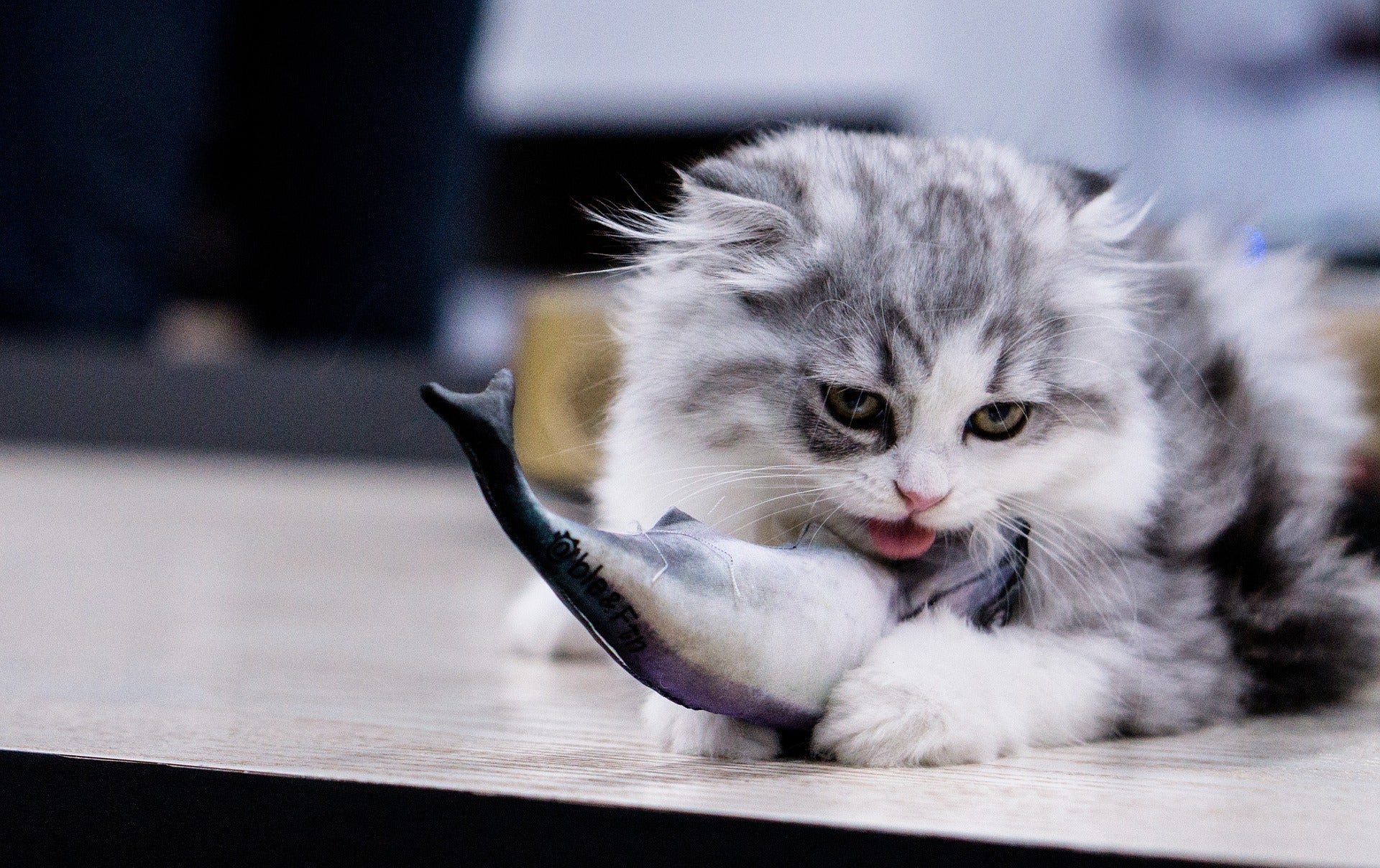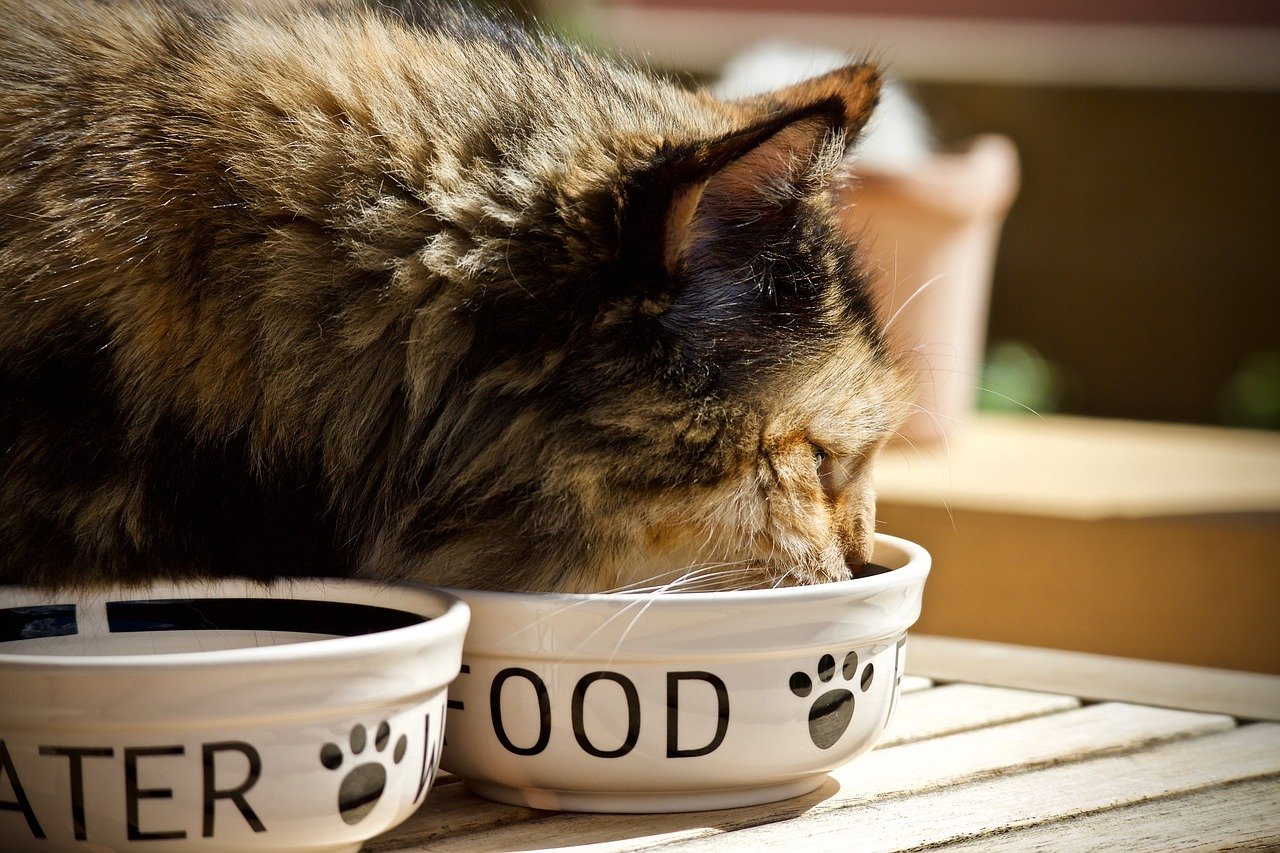
Why do cats like fish? Cats have notoriously been labelled fish hungry creatures, and we see this depiction of cats play out time after time in pop culture references. This mystery intrigues pet parents, veterinarians, historians, and biologists alike. Pop culture shows us that cats have an appetite for nothing but fish, but it turns out this stereotype is not all true. Though most cats do go crazy for fish, not all cats follow this trend. Matter of fact, some cats can even be allergic to fish.
Let's delve into the facts and some theories behind why cats like fish so much. Here, we will cover the following topics:
- Historical and evolution theories
- Why cats like the smell of fish
- Why cats love fish but hate water
- Advice for feeding fish to cats
- Nutrition
- Feeding tips
- Precautions
Historical Theory
Historians connect the appearance of the first cats to the Middle East about 10,000 years ago. They believe that it was also around that time that the domestication of cats began.
Our feline friends are most likely descendants of the African wildcats. Natural carnivores, these wild cats hunted small mammals like rabbits, rats, and mice. Occasionally, they also ate birds and reptiles. Since they lived in the desert, fish was not a food option, so it is unlikely that cats' interest in fish came from this ancestor.
Egyptians and the Domestication of Cats
Although it is not a proven theory, some authors claim that Egyptians were responsible for introducing fish to cats 5,000 years ago. It's not proven but it is certainly a possibility.
The Egyptian civilization was built on the riverbanks of the Nile, where farming was one of their main activities. After harvesting the crops, the Egyptians started noticing that rodents commonly attacked their produce, leaving them without their primary source of food and trade.
Since cats are natural predators and carnivores, they could make great allies in saving the crops from rodents. That could be one of the reasons why the Egyptians supposedly took an interest in cats and the opportunity to domesticate them. The same theories claim that to succeed, fish from the Nile was used to allure cats into their houses and transform them into pets.

Do All Cats Like Fish?
Cats are carnivorous animals with a dietary need for a protein-heavy diet. A high quality source of protein and fat, fish makes for an enjoyable meal for most cats. Cats tend to love fish due to its nutritional content, which they detect by their taste buds. But, cats also have an extraordinary sense of smell (14 times better than that of humans). The smell of fish is highly attractive to cats, but their ability to smell it makes it an even more appealing meal. Though it's rare to find a cat that doesn't like fish, keep in mind that for cats, fish is actually an acquired taste.
Why Do Cats Like the Smell of Fish?
Unlike humans, cats have a sense of smell picked up not only by their nose but also by their vomeronasal organs. These ducts, called Jacobson's organ, are responsible for connecting the mouth to the nose and enhancing both the sense of smell and taste.
These enhanced taste buds are what make cats go crazy and demand fish every time.
Why Do Cats Like Fish but Hate Water?
Cats have retained most of their wild instincts and traits. Our cats have a strong aversion to water for biological reasons. Their natural ancestor is from the desert, so it is unlikely that this wildcat enjoyed swimming. As a result of those origins, most cats' fur absorbs water, making it harder to dry out and groom after.
Some Exceptions

Contrary to the norm, some cats do love water. The Bengal and Maine Coon are two breeds that are known exceptions. And while most cats love fish but aren't keen on fishing, there are a few exceptions from the feline world worth pointing out:
Prionailurus viverrinus, commonly known as the Fishing Cat, is a medium-sized wild cat from Asia that appeared around the same time as the Leopard. This wild cat lives near water and can swim long distances. It has been spotted fishing along the riverbanks and sometimes diving to catch prey in further distances.
Unlike other large felines, a Fishing Cats' diet can be up to three-quarters fish. The remainder of their diet consists of small mammals, birds, and insects.
Other wild cats that have been seen hunting for fish are Leopards and Jaguars, who also love water.
Should I Feed my Cat Fish?
Though a fish-only diet is not suitable for cats, the addition of fish in your cat's diet is a fine choice if your cat prefers it. According to Veterinarian Dr. Jean Hofve, up to 15% of your cats total diet can be an added protein such as fish. As with all dietary decisions for your cat, be sure to consult with your veterinarian first.
Let's analyze some of the benefits and things to consider when it comes to feeding your cat fish.
Nutrition
Fish is an excellent source of protein, omega-3 fatty acids, and taurine, all which are essential for a healthy cat diet. That being said, the nutritional content varies between fish varieties, with some fish types being healthier options than others.
Explore more information about the cautions and benefits of different fish varieties so you can make the best diet decisions for your cat.
Raw, Cooked or Commercial Fish-Flavoured Cat Foods?
Unlike the Fishing Cat, domestic cats' digestive system isn't built for processing fish. It is not advisable to ever feed your cat raw fish, especially fish that has been farmed. Raw farmed fish often contains pathogenic bacteria that can be harmful to your cat.
In small amounts, wild-caught fresh fish when cooked can be a nutritious snack/treat for your cat. In this case, low mercury species are ideal. Opt for species like sole, cod, haddock, tilapia, and pollock, and most shellfish and crustaceans.
When selecting commercial cat food, choose premium products that offer full transparency of their ingredients and where they are sourced - The recommendation is always natural, high-quality ingredients.
Can Cats Eat Canned Tuna?
Though cats love tuna, canned tuna is not recommended for cat consumption as it lacks important nutrients cats need like calcium, fat-soluble vitamins and omega-3 fatty acids.
Oil-preserved tuna has been said to cause vitamin E deficiency and can result in a very painful inflammatory condition called steatitus. Tuna is also known to have higher levels of mercury and selenium which are toxic.
Bottom line, canned tuna is not the best meal choice for your cat but can make for a suitable treat on occasion.
What Types of Fish Can I Feed My Cat?
It's common to think of salmon and tuna as great options for feeding cats, yet both fish types can be high in mercury and other pollutants. That's not to say you can't feed your cat salmon or tuna, just know your options and the precautions. Other varieties such as herring, menhaden, cod and sardines offer safer, more nutritious alternatives for cats.

Can Cats be Allergic to Fish?
Like humans, cats can develop and suffer from allergic reactions. Fish in particular is one of the three most common food allergens in cats.
When a cat is allergic to fish, it is likely due to a protein (histamine) present in the food that causes allergic reactions and sensitivity. Be aware of symptoms like vomiting, diarrhea, swollen skin, wheezing, sneezing, coughing, hair loss, and scratching. Feline lower urinary tract disease is another possible indication of a fish sensitivity.

Feeding Tips
- Low mercury species like wild salmon, cod, sole, tilapia, and most crustaceans, are great choices when cooked.
- For canned alternatives, look for small fish like sardines, herrings, and anchovies preserved whole, in water. Keep away anything preserved in oil or with added ingredients.
- For retail cat food options, choose premium products that contain high-quality, natural ingredients from good sources.
- Keep fish to no more than 15% of your cats' diet.
- Grilling or boiling wild fish is best for preserving all the nutritional value.
Precautions
- Any type of cooked fish aimed at human consumption like smoked fish, fried fish, fish fingers, and even canned fish is an inadequate choice and highly harmful to cats.
- Fish needs to be kept as plain as possible, without additives, seasonings, or flavorings to prevent the ingestion of harmful ingredients.
- Even though fish contains many nutrients, it doesn't fully meet all of your cats' dietary needs. Fatty acids and amino acids like taurine are a nutritional benefit, but minerals such as iron, calcium, and sodium are often lacking.
- Other than mercury, thiaminase is also a harmful toxin present in fish. Though it takes excessive consumption and a long period to develop a deficiency, it destroys thiamine and vitamin B1 which keep the nervous system in good shape.
- An excess of fish in the diet can lead to hyperthyroidism, inflammatory bowel disease, and urinary tract disease (a life-threatening condition for male cats).
- Hyperthyroidism can result from excess iodine consumption and bisphenol-A (found in pet food cans).
- The preservative ethoxyquin is commonly found in fish meals and has been linked to animal health problems. Meals with natural preservatives are a better alternative.
Final Thoughts
Most cats go crazy for fish because of the smell and high protein content, but not all cats share the same preference. While most cats have a love for fish, many cats have a fish sensitivity or are allergic. Get to know your cat's preferences and food sensitivities, and remember that moderation and is always key!

Comments (0)
Back to Noots Cat Blog